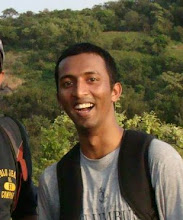Leaders and Democracy
A piece written by a friend recently pulled me into thinking about leaders and how they shape history. Obviously, the discussion started with Hitler and ended with Gandhi. Hitler attained demi-god status in Germany combining a potent mix of socio-economic hardship and nationalistic frevor in the aftermath of the Treaty of Versailles. Gandhi, surprisingly exploited very similar conditions in India.
What is interesting to note is how similar in character the two leaders are leaving aside the anti-semitism and non-violence which seals their places in history. Both were driven by a notion of the ideal society. Both saw in themselves the savior of their nations. Both considered themselves bigger than the whole. Hitler led his country into a dictatorship, democracy in India though is not a Gandhian legacy. If Gandhi had is way, India would probably be a collection of medevial city-states living in the stone age. Democracy in India was bred and nurtured by the early leaders of Congress. If anything Gandhi was the only leader who undermined the democratic structure of the Congress. He behaved like a petulant child. If he did not have his way, he took to fasting rather than dialogue. Bose, who had the support of the majorty of Congress members, defeating Gandhi's candidate, Sitaramayya in the 1939 Congress meeting was forced to resign due to differences in opinion with Gandhi.
Democracy in India is the legacy of a much maligned idealist. Nehru did not have the ego of Gandhi. He believed in the democratic process and held elections for the presidency of the Congress regularly even though he was their undisputed leader. It was probably his influence that made Indira Gandhi end the emergency and call for elections. That is merely a hypothesis.
The question that arises is why aren't democratic institutions able to oust leaders who subvert the will of the majority? Is it an inherent flaw of human nature or of the concept?




Oh we aint democratic. The elections may be, but it ends there.
ReplyDelete